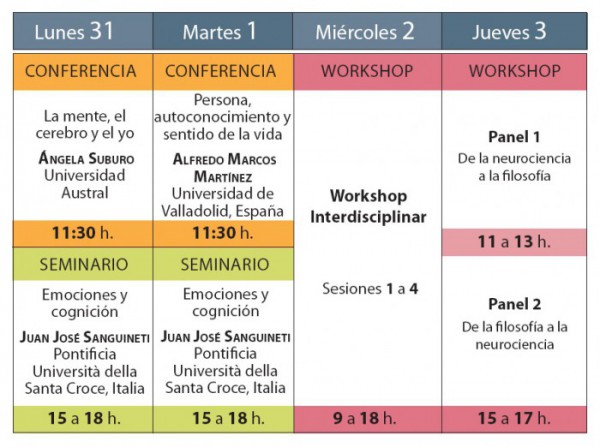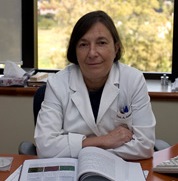INTERDISCIPLINARY RESEARCH WEEK 2017
“FROM THE BRAIN TO THE SELF”
(JULY 31 – AUGUST 3 – UNIVERSIDAD AUSTRAL)
KEY-NOTE TALK: “THE MIND, THE BRAIN AND THE SELF”
Ángela Suburo has a PhD in Medicine (Universidad de Buenos Aires), and she specializes in neurosciences. She is a Senior Researcher at the National Council of Scientific and Technological Research (CONICET) and she is also Professor of Cellular and Molecular Medicine at Universidad Austral. She is member of several associations: Association for Research in Vision and Ophthalmology (Chairperson of the Retinal Cell Biology section), Society for Neuroscience, International Society for Eye Research, Asociación de Investigación en Visión y Oftalmología, Sociedad Argentina de Neuroquímica and Sociedad Argentina de Investigación Clínica. She leads a group of young researchers dedicated to the study of neurodegenerative diseases in the retina and in the brain. She has written numerous articles. In 2011 her work “Mecanismos de protección de los fotorreceptores: papel de los glucocorticoides” received the Nocetti and Tiscornia Prize, awarded by the National Academy of Medicine (Buenos Aires).
KEY-NOTE TALK: “PERSON, SELF-KNOWLEDGE AND THE MEANING OF LIFE”
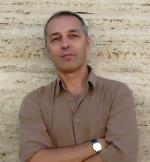
Alfredo F. Marcos Martínez holds a PhD in Philosophy from the University of Barcelona and is Professor of Philosophy of Science at the University of Valladolid. He has been a visiting researcher at Cambridge and Rome. He has taught and lectured at numerous universities in Spain, Colombia, Italy, Mexico, France, Argentina and Poland. He lectures on history and philosophy of science, bioethics, science communication. He has published a dozen books and more than sixty articles and chapters on the history and philosophy of science, environmental ethics, bioethics, philosophy of biology, science communication and Aristotelian studies. He coordinates the philosophy of science section of the journal Investigación y Ciencia. He has been director of the department of philosophy at the University of Valladolid. He has been member of the bioethics committees of several hospitals. He currently coordinates the Interuniversity PhD in Logic and Philosophy of Science.
COURSE: “EMOTIONS AND COGNITION”
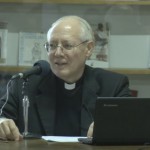 Juan José Sanguineti has a PhD in Philosophy (Universidad de Navarra, Spain). He is Professor of Philosophy of Knowledge at the School of Philosophy at the Pontifical University of the Holy Cross (Rome). He has published fifteen books and nearly a hundred scientific articles on theory of knowledge, philosophy of science, philosophy of nature, philosophy of mind and the neurosciences. He was Director of the Scientific Committee of the Project STOQ III (Rome, 2007-2010, University of the Holy Cross, area of Neurosciences). He regularly delivers graduate courses and seminars at different universities in Latin America. He is ordinary member of the Pontifical Roman Academy of Saint Thomas and of the Sociedad Tomista Argentina. He is a member of the scientific committee of the journal Acta Philosophica (University of the Holy Cross).
Juan José Sanguineti has a PhD in Philosophy (Universidad de Navarra, Spain). He is Professor of Philosophy of Knowledge at the School of Philosophy at the Pontifical University of the Holy Cross (Rome). He has published fifteen books and nearly a hundred scientific articles on theory of knowledge, philosophy of science, philosophy of nature, philosophy of mind and the neurosciences. He was Director of the Scientific Committee of the Project STOQ III (Rome, 2007-2010, University of the Holy Cross, area of Neurosciences). He regularly delivers graduate courses and seminars at different universities in Latin America. He is ordinary member of the Pontifical Roman Academy of Saint Thomas and of the Sociedad Tomista Argentina. He is a member of the scientific committee of the journal Acta Philosophica (University of the Holy Cross).
WORKSHOP “FROM THE BRAIN TO THE SELF”
The aim of the workshop is to promote an interdisciplinary high-level research in six working sessions. The question that guides each session will be studied by a couple of scholars from different disciplines. The first speaker will present the status quaestionis, then propose a possible answer from his discipline, opening the game to the presentation of a complementary vision from the perspective of the other speaker. The second speaker will assess the contributions from the first intervention, propose a possible answer from his discipline and open the session to questions and comments from all participants.
SESSION 1: HOW DO NEUROSCIENCE, PSYCHOLOGY AND PHILOSOPHY CONTRIBUTE TO OUR KNOWLEDGE OF THE HUMAN BEING?
Alfredo F. Marcos Martínez holds a PhD in Philosophy from the University of Barcelona and is Professor of Philosophy of Science at the University of Valladolid. He has been a visiting researcher at Cambridge and Rome. He has taught and lectured at numerous universities in Spain, Colombia, Italy, Mexico, France, Argentina and Poland. He lectures on history and philosophy of science, bioethics, science communication. He has published a dozen books and more than sixty articles and chapters on the history and philosophy of science, environmental ethics, bioethics, philosophy of biology, science communication and Aristotelian studies. He coordinates the philosophy of science section of the journal Investigación y Ciencia. He has been director of the department of philosophy at the University of Valladolid. He has been member of the bioethics committees of several hospitals. He currently coordinates the Interuniversity PhD in Logic and Philosophy of Science.
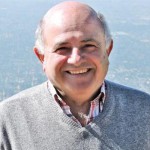 José Eduardo Moreno has a degree in Psychology from the Universidad de Buenos Aires and a Ph.D. in Psychology from the Universidad del Salvador. He is Deputy Director of the Interdisciplinary Center for Research in Mathematics and Experimental Psychology “Dr. Horacio J. A. Rimoldi” (CIIPME – CONICET) and Independent Researcher of the National Council of Scientific and Technical Research. He is also Titular Professor of the Pontificia Universidad Catolica Argentina and Ordinary Consulting Professor at the Universidad del Salvador. He is a specialist in developmental psychology (childhood and adolescence). His main research topics: a) psychological theories of social and moral development; b) evaluation of values and ethical positions; c) vocational and occupational motivations; d) self-concept, self-esteem and relationship with peers in adolescence.
José Eduardo Moreno has a degree in Psychology from the Universidad de Buenos Aires and a Ph.D. in Psychology from the Universidad del Salvador. He is Deputy Director of the Interdisciplinary Center for Research in Mathematics and Experimental Psychology “Dr. Horacio J. A. Rimoldi” (CIIPME – CONICET) and Independent Researcher of the National Council of Scientific and Technical Research. He is also Titular Professor of the Pontificia Universidad Catolica Argentina and Ordinary Consulting Professor at the Universidad del Salvador. He is a specialist in developmental psychology (childhood and adolescence). His main research topics: a) psychological theories of social and moral development; b) evaluation of values and ethical positions; c) vocational and occupational motivations; d) self-concept, self-esteem and relationship with peers in adolescence.
Bibliography:
Alfredo Marcos (2015). Neuroética y vulnerabilidad humana en perspectiva filosófica. Cuadernos de Bioética XXVI(3): 397-414.
György Gergely y Gergely Csibra (2003). Teleological reasoning in infancy: the naïve theory of rational action. TRENDS in Cognitive Sciences 7(7): 287-292.
SESSION 2: HOW COMPELLING IS THE DISTINCTION BETWEEN THE FIRST- AND THE THIRD-PERSON PERSPECTIVES AS AN ARGUMENT AGAINST NATURALISM?
 Juan José Sanguineti has a PhD in Philosophy (Universidad de Navarra, Spain). He is Professor of Philosophy of Knowledge at the School of Philosophy at the Pontifical University of the Holy Cross (Rome). He has published fifteen books and nearly a hundred scientific articles on theory of knowledge, philosophy of science, philosophy of nature, philosophy of mind and the neurosciences. He was Director of the Scientific Committee of the Project STOQ III (Rome, 2007-2010, University of the Holy Cross, area of Neurosciences). He regularly delivers graduate courses and seminars at different universities in Latin America. He is ordinary member of the Pontifical Roman Academy of Saint Thomas and of the Sociedad Tomista Argentina. He is a member of the scientific committee of the journal Acta Philosophica (University of the Holy Cross).
Juan José Sanguineti has a PhD in Philosophy (Universidad de Navarra, Spain). He is Professor of Philosophy of Knowledge at the School of Philosophy at the Pontifical University of the Holy Cross (Rome). He has published fifteen books and nearly a hundred scientific articles on theory of knowledge, philosophy of science, philosophy of nature, philosophy of mind and the neurosciences. He was Director of the Scientific Committee of the Project STOQ III (Rome, 2007-2010, University of the Holy Cross, area of Neurosciences). He regularly delivers graduate courses and seminars at different universities in Latin America. He is ordinary member of the Pontifical Roman Academy of Saint Thomas and of the Sociedad Tomista Argentina. He is a member of the scientific committee of the journal Acta Philosophica (University of the Holy Cross).
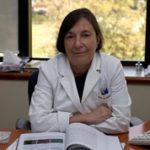 Angela Suburo has a PhD in Medicine (Universidad de Buenos Aires), and she specializes in neurosciences. She is a Senior Researcher at the National Council of Scientific and Technological Research (CONICET) and she is also Professor of Cellular and Molecular Medicine at Universidad Austral. She is member of several associations: Association for Research in Vision and Ophthalmology (Chairperson of the Retinal Cell Biology section), Society for Neuroscience, International Society for Eye Research, Asociación de Investigación en Visión y Oftalmología, Sociedad Argentina de Neuroquímica and Sociedad Argentina de Investigación Clínica. She leads a group of young researchers dedicated to the study of neurodegenerative diseases in the retina and in the brain. She has written numerous articles. In 2011 her work “Mecanismos de protección de los fotorreceptores: papel de los glucocorticoides” received the Nocetti and Tiscornia Prize, awarded by the National Academy of Medicine (Buenos Aires).
Angela Suburo has a PhD in Medicine (Universidad de Buenos Aires), and she specializes in neurosciences. She is a Senior Researcher at the National Council of Scientific and Technological Research (CONICET) and she is also Professor of Cellular and Molecular Medicine at Universidad Austral. She is member of several associations: Association for Research in Vision and Ophthalmology (Chairperson of the Retinal Cell Biology section), Society for Neuroscience, International Society for Eye Research, Asociación de Investigación en Visión y Oftalmología, Sociedad Argentina de Neuroquímica and Sociedad Argentina de Investigación Clínica. She leads a group of young researchers dedicated to the study of neurodegenerative diseases in the retina and in the brain. She has written numerous articles. In 2011 her work “Mecanismos de protección de los fotorreceptores: papel de los glucocorticoides” received the Nocetti and Tiscornia Prize, awarded by the National Academy of Medicine (Buenos Aires).
Bibliography:
Thomas Nagel (1974). What is it like to be a bat? The Philosophical Review LXXXIII(4): 435-450.
Lynne Rudder Baker (2013). Can Subjectivity be Naturalized? Metodo. International Studies in Phenomenology and Philosophy 1(2): 15-25.
SESSION 3: CAN SELF-UNDERSTANDING BE PRESERVED DESPITE COGNITIVE DYSFUNCTIONS?
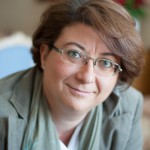 Consuelo Martínez Priego holds a doctorate in Psychology from the Universidad Complutense de Madrid and a PhD in philosophy from the University of Navarra. She develops her teaching and research activity at the Villanueva University Center (attached to the Universidad Complutense de Madrid). Between the years 2013-2015 she has also been a professor and researcher at the Universidad Panamericana. She is the author of numerous scientific publications. Among her books stand out “Neuroscience and Affectivity. The psychology of Juan Rof Carballo”(Erasmus, 2012) and “The family and its fields” (Porrúa 2016). In her publications she approaches the themes of human freedom, affectivity and emotions, as well as intrafamily bonds, articulating the philosophical, psychological and educational perspectives. She is Member of the Spanish Society of History of Psychology, of the Spanish Association of Personalism and of the Institute of Philosophical Studies Leonardo Polo.
Consuelo Martínez Priego holds a doctorate in Psychology from the Universidad Complutense de Madrid and a PhD in philosophy from the University of Navarra. She develops her teaching and research activity at the Villanueva University Center (attached to the Universidad Complutense de Madrid). Between the years 2013-2015 she has also been a professor and researcher at the Universidad Panamericana. She is the author of numerous scientific publications. Among her books stand out “Neuroscience and Affectivity. The psychology of Juan Rof Carballo”(Erasmus, 2012) and “The family and its fields” (Porrúa 2016). In her publications she approaches the themes of human freedom, affectivity and emotions, as well as intrafamily bonds, articulating the philosophical, psychological and educational perspectives. She is Member of the Spanish Society of History of Psychology, of the Spanish Association of Personalism and of the Institute of Philosophical Studies Leonardo Polo. 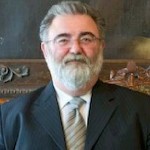
Pacual Ángel Gargiulo is a doctor in Medicine, specialist in Psychiatry and Legal Medicine by the National University of Cuyo. He is professor of pharmacology at the Faculty of Medical Sciences of that university and an independent researcher at CONICET. He is founder and current director of the Laboratory of Neurosciences and Experimental Psychology. He has focused his research on epistemological and experimental approaches to psychopathological disorders, including applications of neurosciences in education.
Bibliography:
Shinobu Kitayama y Jiyoung Park (2010). Cultural neuroscience of the self: understanding the social grounding o the brain. Social Cognitive and Affective Neuroscience Jun 5(2-3): 111-129.
Juan Arana Cañedo Argüelles (2015). Las explicaciones de la conciencia desde las neurociencias. In La conciencia inexplicada. Ensayo sobre los límites de la comprensión naturalista de la mente, ch. V, pp. 109-127. Madrid: Biblioteca Nueva.
SESSION 4: IS THE ‘SELF’ AN ADEQUATE BRIDGE BETWEEN THE RESULTS OF NEUROSCIENCE AND THE NOTION OF PERSON?
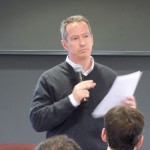
Juan Pablo Roldán holds a degree in Philosophy from the Argentina Catholic University. He teaches philosophy at this university in the career of Psychology, where he leads a philosophical-psychological interdisciplinary seminar. He is also professor of History of Modern Philosophy at the University of the North Saint Thomas Aquinas.

Pablo Brumovsky is Doctor in Biomedical Sciences from the Universidad Austral and holds a PhD in Neurosciences from the Karolinska Institute. He is Associate Researcher of CONICET at the Institute of Research in Traslational Medicine (CONICET-Universidad Austral) and Professor of Anatomy at the University Austral. He is a member of the International Association for the Study of Pain and directs a research group devoted to the study of chronic pain of visceral or somatic origin.
Bibliography:
Jonathan Smith y Mike Osborn (2007). Pain as an assault on the self: An interpretative phenomenological analysis of the psychological impact of chronic benign low back pain. Psychology and Health 22(5): 517-534.
Paula Arizmendi Mar (2015). Tras la sabiduría perdida del dolor. Estudios 113(XIII): 153-167.
SESSION 5 – ROUND TABLE: CAN PHILOSOPHY PROVIDE AN INTERPRETIVE FRAMEWORK TO NEUROSCIENTIFIC STUDIES?
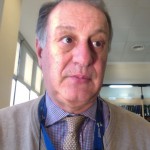 Jorge T. Insúa graduated as a Physician at the University of Buenos Aires (UBA) in 1978 and trained in various specialties. He was a resident of hospitals in Argentina and the Mount Sinai School of Medicine (New York). Author of a master’s thesis in bioethics, geriatrics and health services, he divides his time between clinical care, research and teaching, performing at the UBA, at the University Hospital Austral and at the Favaloro University.
Jorge T. Insúa graduated as a Physician at the University of Buenos Aires (UBA) in 1978 and trained in various specialties. He was a resident of hospitals in Argentina and the Mount Sinai School of Medicine (New York). Author of a master’s thesis in bioethics, geriatrics and health services, he divides his time between clinical care, research and teaching, performing at the UBA, at the University Hospital Austral and at the Favaloro University.

Pascual A. Gargiulo is a doctor in medicine, specialist in psychiatry and legalistic doctor by the National University of Cuyo. He is professor of Pharmacology at the Faculty of Medical Sciences of that university and an independent researcher at CONICET. He is founder and current director of the Laboratory of Neurosciences and Experimental Psychology. He has concentrated his research on epistemological and experimental approaches to psychopathological disorders, including applications of neurosciences in education.
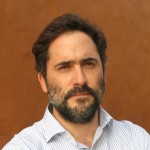
Juan Esteban de Erquiaga is a psychiatrist by the University of Buenos Aires. He obtained a Fellowship in Liaison Psychiatry at Universidad Austral (2013) and is currently part of the Psychiatry Service Staff at the Austral Hospital.
SESSION 6 – ROUND TABLE: WHICH NEUROSCIENTIFIC FINDINGS ENLIGHTEN IN A NOVEL WAY OUR UNDERSTANDING OF THE HUMAN PERSON?
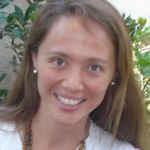
Ivana Anton Mlinar has a PhD in Philosophy from the National University of Cuyo – UNCuyo (as a grantee from DAAD in the Husserl-Archiv of the Cologne University, Germany). She is a Junior Researcher at the National Council of Scientific and Technological Research (CONICET) and she is Professor of Philosophy of Language at the UNCuyo. She is director of the journals Philosophiaand Revista de Fenomenología y Ciencia Cognitiva (with Jethro Masís). She directs the research project “Fenomenología y neurociencias: perspectivas en torno a la empatía” (UNCuyo) [Fenomenology and Neuroscience: Perspectives on Empathy].
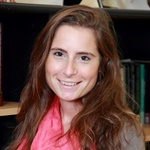
Agustina Lombardi is Research Assistant at the Ian Ramsey Centre, Oxford, and PhD student at the Universidad Católica Argentina, where she got her degree in Philosophy in 2011. In 2014 she obtained a scholarship from the University of Oxford for a Master’s degree in Modern Theology. Her area of interest is the phenomenology of the person, in relation to scientific research on freedom and the personal self. She is Professor of Philosophy at the Faculty of Biomedical Sciences of the Austral University.

Juan Pablo Roldán has a degree in Philosophy from the Universidad Católica Argentina. He teaches philosophy at that university in the career of Psychology, where he leads an interdisciplinar philosophical and psychological seminar . He is also professor of History of Modern Philosophy at the University of North St. Thomas Aquinas.
